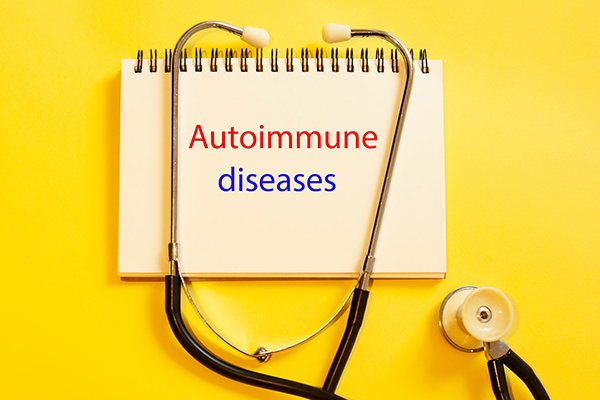




According to the Lancet, autoimmune disease affects one in ten people globally and it’s now estimated to be growing at a rate of between three to nine percent per year.
While the scientific community lacks consensus on how autoimmune disease is defined, or the precise mechanisms for its development, it is agreed that it is characterized by self-reactive immune components accompanied with pathology.
Thanks to the human genome project, genetic risk factors for these conditions have been identified, however:
“…there has been relatively little progress in deciphering the even more profound impact of environmental influences. This is not surprising given the difficult tasks of assessing the doses, durations, and effects of the myriad combined environmental exposures we experience over a lifetime and the complex impacts they have on the maturation and function of the immune system.”
While autoantibodies (antibodies against self) found in blood tests alone don’t diagnose disease, they do define the presence of autoimmunity. Sometimes such conditions can develop temporarily as a result of immunizations, infections, drug use or injuries. Those are the typical antecedents. However, in many cases these autoantibodies are persistent and pathogenic and the best predictors of developing full blown autoimmune disease.
The presence of antinuclear antibodies (ANA) is a common marker of autoimmunity. According to NHANES data, in the year 1988 through 1991, ANA prevalence was 11%. In the years 2011 through 2012, it increased to 16.1%. This represents 41.5 million individuals affected most recently, up from 22.3 million. Interestingly, the most impressive increase was in teenagers during these time periods and increases were observed in both sexes.
With regard to autoantibodies, the most common ones found were against thyroid which are anti-thyroglobulin or anti-thyroperoxidase antibodies (associated with Hashimoto’s thyroiditis), rheumatoid factor, which is most often associated with rheumatoid arthritis, and anti-tissue transglutaminase autoantibodies which are associated with gluten sensitivity and celiac disease. Other autoimmune conditions include lupus, multiple sclerosis, Crohn’s disease, Sjogren’s, Grave’s disease, scleroderma, and myasthenia gravis.
Globally, the best studied autoimmune disease is type 1 diabetes, where investigators have found “a consistent 3-4% annual increase in incidence over the last three decades.”
Researchers recognize the importance of genetic factors in the development of autoimmune disease, however:
“Nonetheless, most genes are neither good nor bad, but only their environments make them so. Moreover, our genetic architecture, which has evolved over millennia to allow us to thrive in prior environments, may in many ways be ill-suited to our rapidly changing modern environmental challenges.”
Of most concern according to researchers are the major changes to our food systems, diet and the effects on microbiomes, xenobiotic contacts and toxic exposures, unhealthy lifestyle and obesity rates, sleep deprivation, stress and air pollution.
You don’t ever hear about this on the evening news. But if humanity doesn’t wake up and address this, autoimmune disease will only become more prevalent in the future.
To your health!
Leyla Muedin, MS, RD, CDN
Curr Opin immunol. 2023 February; 80:102266.doi:10.1016/j.coi.2022.10226.
Though we think of declining estrogen as the hallmark of menopause, it's actually common for…

Up to 12 percent of Americans have ulcers at some point in life. Peptic ulcers…
Gallbladder disease is a modern illness. An estimated 20 million Americans have gallbladder disease. The…

There’s more to GI health than whether or not to take an acid-blocker. All too…

In the latest attempt to remove “stigma” from medical terminology, liver specialists have come up…

Q: My husband’s high sensitivity C-reactive protein (hs-CRP) is 1.62 and his homocysteine is 13.1. If…

Banish the Bloat: Leyla Weighs In with Tips and Insights

Our virtual voicemail is open 24/7, so there's no need to wait to submit your questions for Dr. Hoffman. Leave a message, and you may hear your question featured on the Intelligent Medicine radio program!